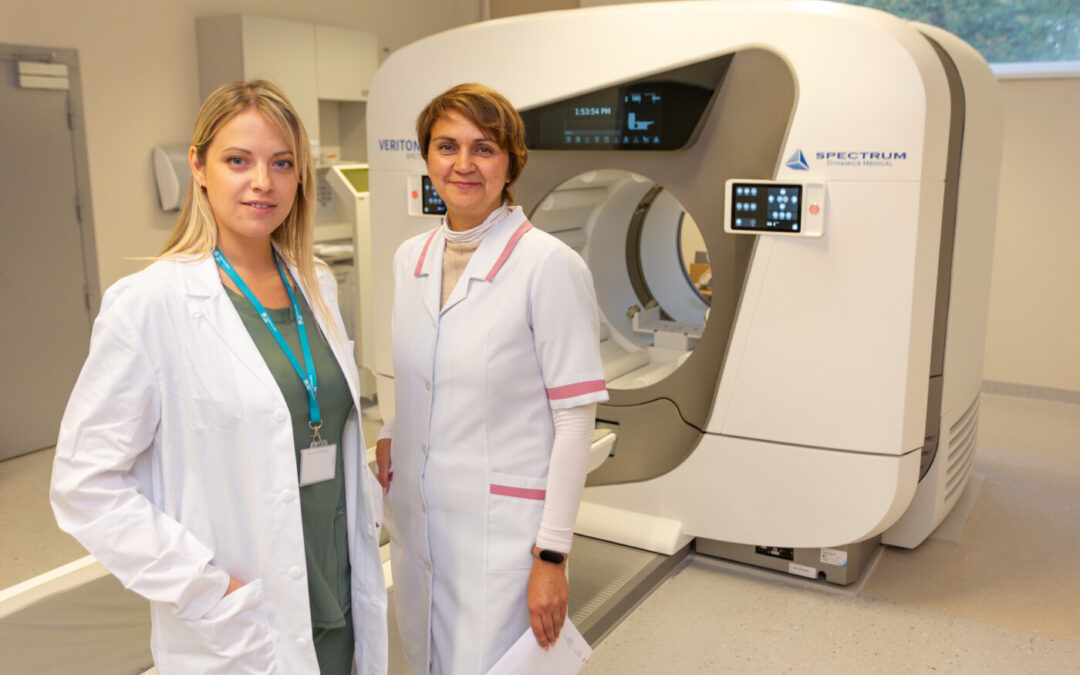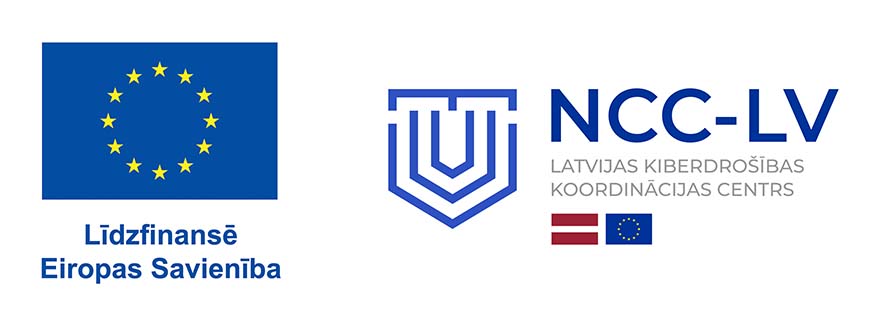Medical examinations using a new CZT SPECT/CT digital scintigraphy device will be available at the ARSkodolmedicīnas klīnika starting this autumn.
Introducing the new possibilities, here is Radiologist Dr Marika Kalnina, Head of the ARS kodolmedicīnas klīnika.
“Scintigraphy equipment of the latest generation using CZT detectors and low-dose computed tomography scans is now available, providing medical imaging possibilities with a higher diagnostic value than the equipment used previously.”
Various scintigraphy examinations will be available at our clinic from 4 November:
- Skeletal scintigraphy with SPECT/CT imaging
- Dynamic renal scintigraphy
- Thyroid scintigraphy
- Parathyroid scintigraphy SPECT/CT scan
- Myocardial perfusion scintigraphy SPECT/CT scan
- Lung ventilation-perfusion SPECT/CT scan
- Pyrophosphate scintigraphy, etc.
“These examinations will be planned, performed and the results will be interpreted by an experienced team of nuclear medicine doctors, radiologists, cardiologists, radiologist assistants, physicists and coordinators specialising in this particular field and boasting 15-20 years of practical experience in nuclear medicine. Myocardial stress tests with SPECT/CT imaging will be performed by specialist radiologists and cardiologists Dr Barbara Vitola and Dr Milana Sorokina. Thus we will help solve the painful issue of the availability of scintigraphy examinations in Latvia.”
For Your Information: We recommend to make appointments for scintigraphy examinations, which will start on 4 November, in advance.
You can arrange an appointment right now:
- call (+371) 67 201 007
- go to our website: https://arsmed.lv/pieteikt-viziti/
What is Scintigraphy or SPECT/CT Scan?
Scintigraphy (SPECT/CT scan) is a diagnostic method used in nuclear medicine. The name comes from the Latin word scintilla (spark).
In this examination, a small amount of a radioactive isotope is administered to the patient in an intravenous injection. The isotope emits gamma rays which flash on coming into contact with the crystals used in the SPECT/CT machine and produce a light signal that creates the diagnostic image.
Special Advantages of the Scintigraphy Method
Compared to traditional medical examination methods, such as computed tomography (CT) and magnetic resonance (MRI) scans which help identify structural changes in body organs, scintigraphy represents a unique, highly sensitive method capable of detecting functional changes in body tissue and internal organs.
Use of the scintigraphy method is of essential importance in:
- oncology: in diagnosing bone metastases and bone and joint pathologies,
- cardiology: in measuring the heart muscle perfusion and blood flow,
- this method is also widely used for:
- evaluation of thyroid nodule functions,
- evaluation of renal functions for each kidney separately,
- diagnostics of parathyroid adenomas,
- evaluation of lung functions, etc.
Is it harmful?
The radioactive isotope used in scintigraphy emits weak radiation, which is smaller than the radiation dose patients receive in other medical examinations, e.g. in CT scans. No allergic reactions have been observed in connection with the substances used in scintigraphy. Lung scintigraphy examinations can also be performed during pregnancy.
Things patients should observe after a scintigraphy examination
You will be able to return to your daily routines immediately after the examination: get back to your tasks and chores, drive a car etc. The substance administered in this medical examination is excreted through the kidneys, so we recommend drinking lots of liquids during the next 24 hours. No additional safety precautions are required to be observed but it is recommended to limit close prolonged contact with little children and pregnant women (minimal distance is one metre).
A physician’s referral is required. A referral for a thyroid scintigraphy examination can be obtained from either a general practitioner or a specialist doctor. A referral from a specialist doctor is specifically required for an examination of other body organs.
Scintigraphy examinations will be performed by specialist radiologists and cardiologists:
- radiologist Dr Marika Kalnina
- radiologist Dr Jelena Kedrova
- cardiologist Dr Barbara Vitola
- cardiologist Dr Milana Sorokina
ARS Nuclear Medicine Clinic
Gardenes iela 13, Riga, Latvia
For appointments:
- call (+371) 67 201 007
- go to our website: https://arsmed.lv/pieteikt-viziti/




